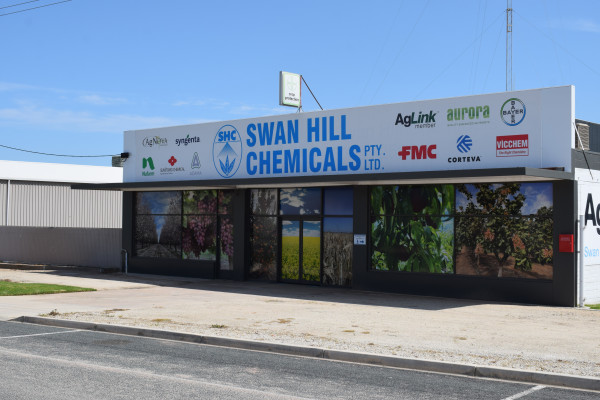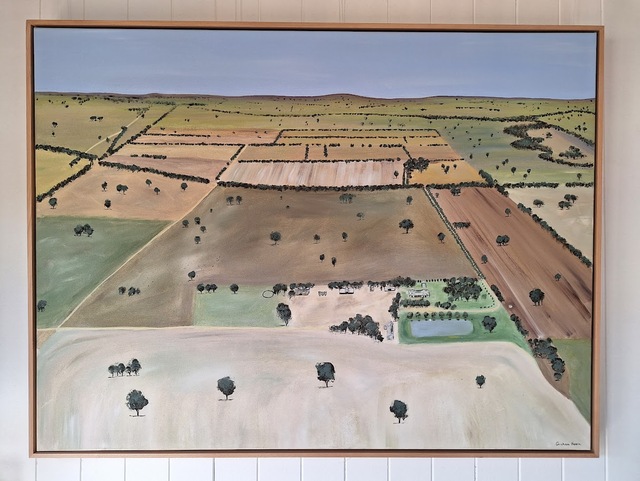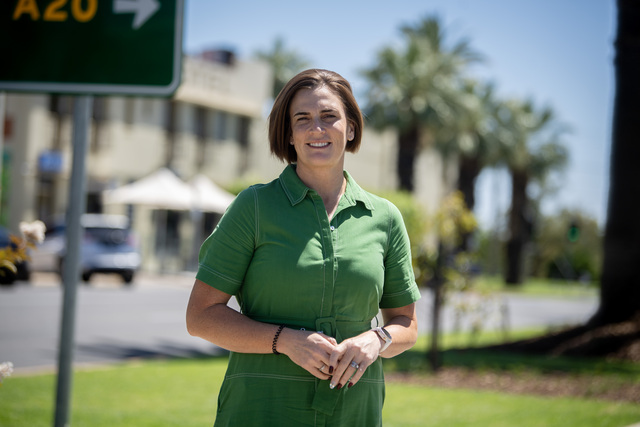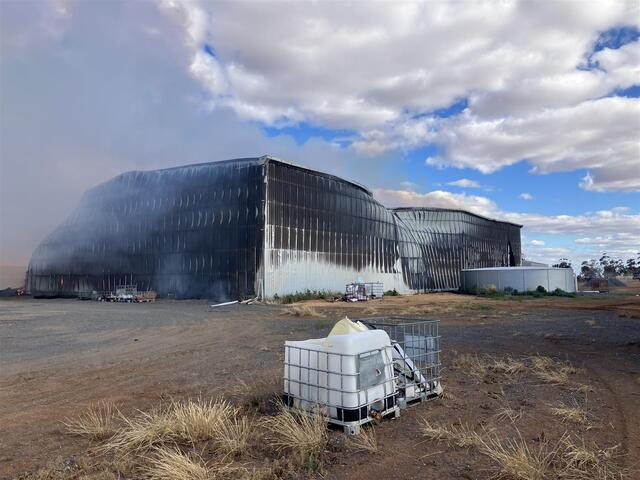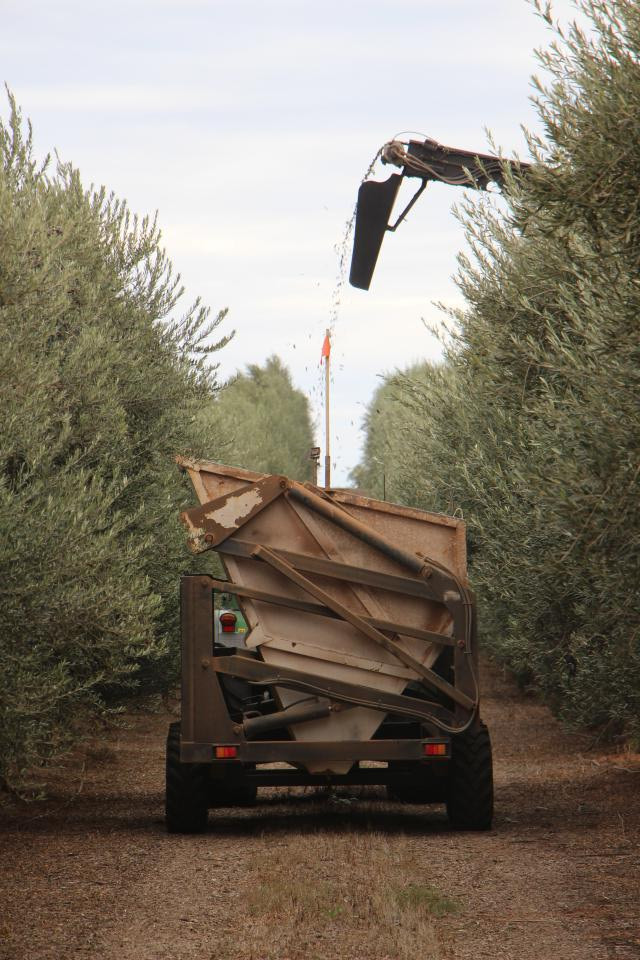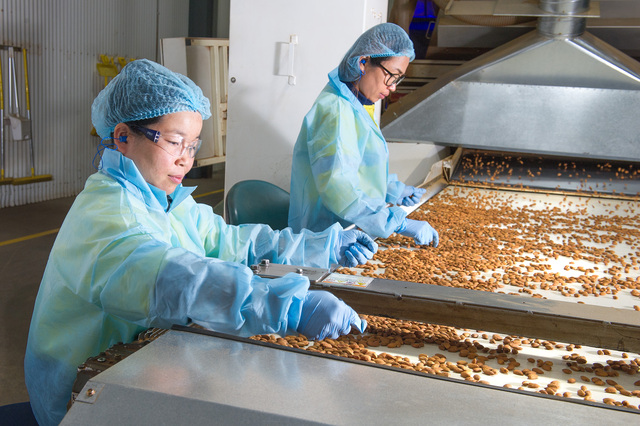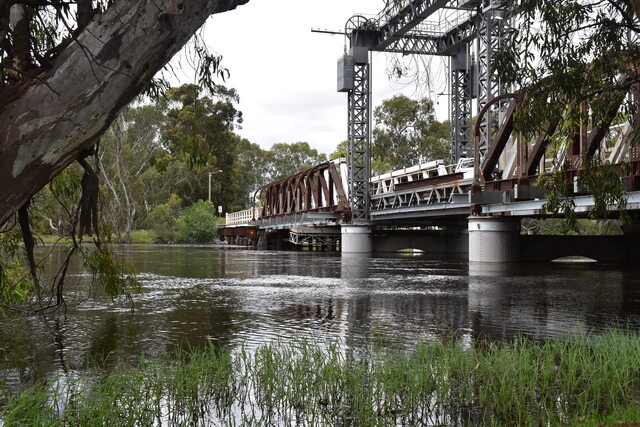It seems everyone wants – or has wanted – a piece of the Swan Hill Chemicals action.
Back in the 1960s multinational Shell loved it so much, it bought the business from founder David Potts.
After running it for eight years, Shell sold out to staff member and manager Reg Packer.
Who in turn sold to a management buyout when he retired in 2011.
Which saw Gary Jeans end up buying out the management buyout – and he’s still running the show.
Except Swan Hill Chemicals circa 2022 is a lot more than Swan Hill.
It’s also Robinvale Ag Supplies, Mildura Ag Supplies, Aurora (Irymple) Distributors, Nangiloc Ag Supplies, Kerang Ag Supplies and NT Ag Supplies (yes, that would be NT as in the Northern Territory).
A business that in 1985 employed seven people today juggled 50, between head office at 20 Nyah Rd in Swan Hill and the rest of its burgeoning network.
“There is an old saying,” Reg Packer explained. “When opportunity knocks, you act.”
He certainly did, so did Gary.
Reg said it got going based on intensive horticulture with soldier settlements before areas around Tresco, Woorinen and Nyah swapped to stone and dried fruits and “that’s when everything really started to take off”.
Since then Gary, who originally joined the business as “one of the guys on the shopfloor”, was the one riding herd on the evolution.
He said times good and bad have all played their part in the business, as well as the local industries – even drought had its impact on bringing in a lot of technical expertise.
“There was that big wave of horticulture and the demand for technology to do that – then with the almonds, the table grapes and the citrus,” Gary said.
“Then the farms started getting bigger and the technology had to grow alongside that.
“Over the years the business has followed the growth of the industry along the river and we have continued to develop and refine our inventory to make sure we have what our clients need – such as introducing liquid fertilisers through Aurora Distributors or the work we are doing in the NT, which has seen a lot of success with mangoes and Asian vegetables through to fertilisers for improving pasture for beef cattle.”
Gary may not have come off a farming background in the traditional sense – he recalled his Nyah childhood shared with “three pigs, one house cow, one sheep and a few chooks”.
But he also knew “in those days it was one in, all in” with whatever was going on.
Which was also the story of Swan Hill Chemicals – everyone deals with the customers and everyone lends a hand whatever the job.
And while the product range was significant – extending to machinery – Gary said it really came down to the people.
“We have become much more specialised with the advice we provide, backing that up with training, product-specific training with suppliers and in-field experience,” Gary said.
“Take Brian Cumming, our chief operations manager and senior horticulture agronomist and Mathew Earle, our senior horticulturalist and sales agronomist – there’s a veritable wealth of experience and industry knowledge there, along with our sales agronomists, technical assistants and a dedicated horticultural agronomist.
“Apart from the advice and support they offer, they are also able to help clients with monitoring pests and disease so they are always ahead of the problem, not caught playing catch-up.”
Swan Hill Chemicals’ broadacre agronomists help tailor programs to suit the needs of each client, with specialists in both winter and summer cropping strategies with a wide variety of crop types covering dryland and irrigated farms and employing drones and NDVI imaging to better maps farms and individual paddock performance.
And giving customers access to everything from seed, chemicals and fertilisers through to digital agronomy.
“Alongside expert agronomy is the team’s ability to offer export protocol in-crop monitoring to ensure your export market requirements are met,” Gary said.
“That means general crop monitoring, plant tissue analysis, nutrient uptake analysis, water analysis, soil testing, carpophilus monitoring program, pesticide residue (MRL) testing and across just about everything you could think of growing, such as tomatoes, potatoes, brassicas, vegetables, stone fruit, grapes, almonds, pistachios, citrus, cucurbits and the rest of the alphabet.”
But it’s not all about paddocks and produce, through its merchandise arm the company also supplied pet food, pool chemicals, Century batteries, home garden supplies, chemicals, fertiliser, seed, Mongrel boots, pruning equipment, spray tank equipment (Rapid Spray, Micron/Enviromist and Silvan) and personal protective equipment.
“Swan Hill Chemicals are now the national distributors of Enviromist and Micron spray equipment; for the past 20 years we have specialised in ATV and tractor mounted herbicide and pesticide spray units,” Gary said.
“We also stock a large range of handheld units for the home, business and farm. Today we distribute parts and units across Australia.
“Micron is a pioneer of controlled droplet application (CDA) technology, they are invested heavily in market research and innovation to deliver quality products now used in more than 100 countries and tailored to meet the varying needs of specific industries which include aerial spraying, horticulture and viticulture, agriculture, animal and public health, forestry and migrant pest control.”
Gary said the launch of their independent broadacre consulting business – all-AG Consulting and Technical Services – added a consultancy operating alongside Swan Hill Chemicals and specialising in winter dryland broadacre cropping and summer irrigated/dryland cropping.
He said the business was determined to be at the forefront of technology use in agriculture, such as NDVI/infra-red satellite imagery, on-farm video monitoring and application tools that collate data so the farmer and consultant can analyse and access it in the field.
“One of the keys to a business such as ours is the people who work in it, and we are always on the lookout for young people – the agricultural industry around here, from its cropping and citrus to table grapes and technology,” Gary said.
“Everyone is finding it hard to find people and it’s surprising at Swan Hill Chemicals how many young people we have who have come to us from other trades.
“I’ll employ for attitude every time, you can always teach someone the skills – you just have to get people who want to excel.”
Gary was a casebook example – he started out in the wine industry, moved to boat building and then tried his hand at broom sweeping before working up through the ranks to own the business.
“That people factor has made working with large family businesses one of our strengths – in the south each one of our locations manages mostly within a 200km radius but in the NT that stretches to 500km,” he said.
“As the farms have got bigger, the way you do business changes. For example, around Woorinen there used to be maybe 130 growers, now there’s just 20 big boys who, I should mention, are probably having the best dryland season I have ever seen.
“Horticulture as an industry has its share of challenges but also has great opportunities and Australian horticulture has such a clean, green image which gives it a real edge with international markets.”
On paper, Covid should have been one of the company’s biggest challenges.
But Gary said they looked at other businesses which very quickly shut down and realised that wasn’t going to be a solution.
“So less than a week later we had our drive-through set up here in Swan Hill and it has been such a success we are planning to install them at all our sites going forward,” Gary said.
“Covid has also made us a more sophisticated business – we were able to maintain access to the products our clients needed and that on its own was such a winner and we saw there was a better, more efficient way for our system to work.”
Gary said with Covid controls all now relaxed, investors can now travel again after that side of the industry did face a pandemic setback as people wouldn’t really want to buy without seeing.
“We are still seeing the ongoing enhancement of land adjacent to irrigation system, along with significant growth on the Murrumbidgee, but it will still be a while before we see that emerging conversion from annual and perennial crops.”
So with all that has happened, and is happening, does Gary ever wonder if he made the right move?
Absolutely not.

